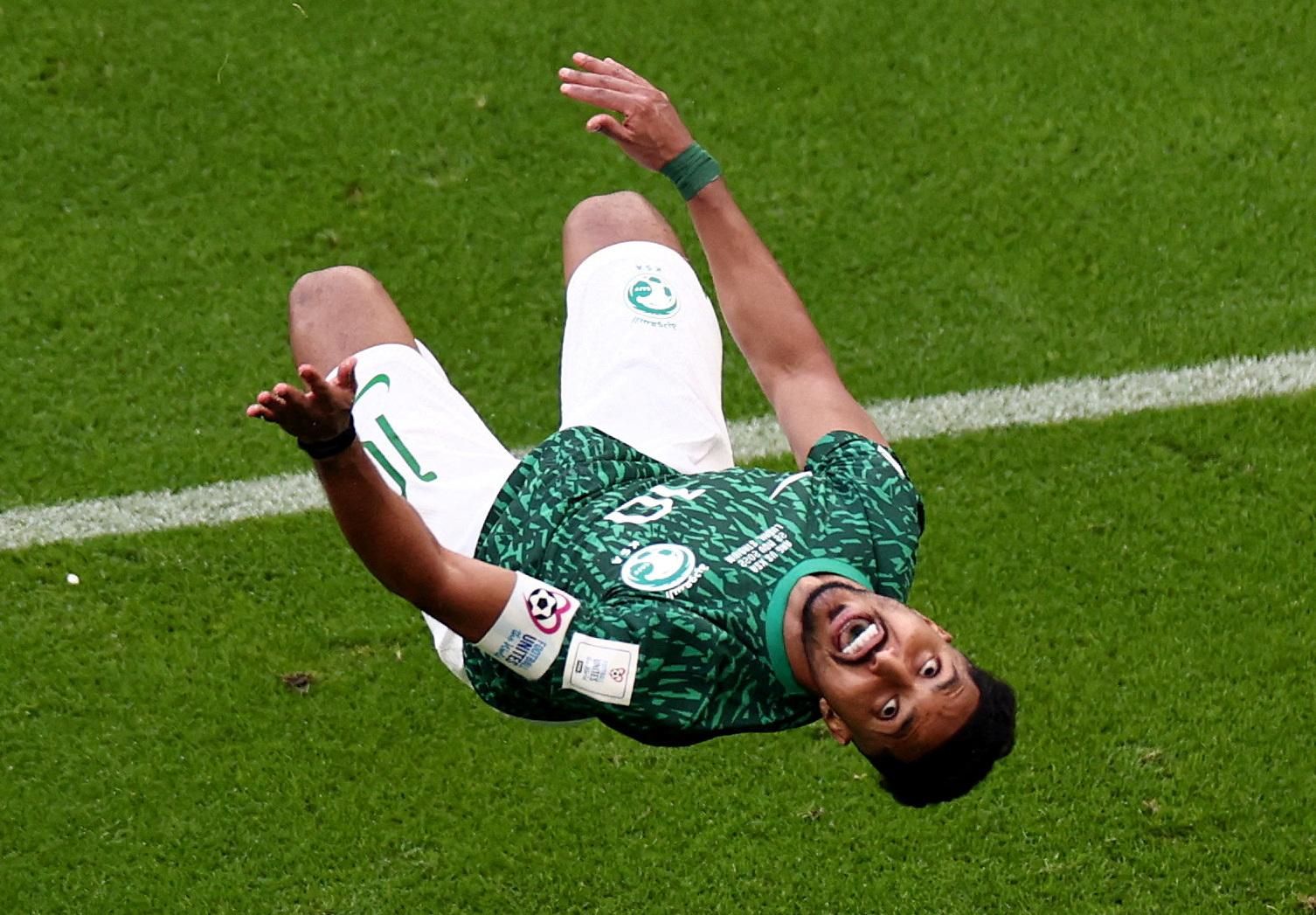Saudi Arabia's stunning victory over Argentina on Tuesday was one of the greatest upsets in World Cup history. The lowly Saudis defeated the mighty Argentines, overcoming odds so great that if you'd bet $100 on the Saudis, you'd have walked out with more than $2,200 in beer money. (Oops, you can't actually buy any beer at Qatar 2022.)
More importantly, it made the kingdom proud — and sent long-awaited ripples of soccer joy throughout the Arab world. Why?
For one thing, soccer is immensely popular across the Middle East and North Africa. Cafés everywhere from Cairo to Damascus celebrated the Saudi win as one of their own in a part of the world that often gets more attention from conflict and political turmoil than from its achievements on the world stage. What's more, for the first time the tournament is being hosted by Qatar, which has made a big deal out of this being the World Cup for the Arab world.
For another, MENA countries have traditionally underperformed at the World Cup. Only three countries — Morocco in 1986, Saudi Arabia in 1994, and Algeria in 2014 — have ever made it to the knockout stage, despite having a rich soccer tradition and many players in top European leagues. For connoisseurs, MENA teams play a beautiful attacking game but get bested by the superior physical and tactical skills of the squads from Europe or South America that have long dominated the sport.
What’s more, 40 years ago Arabs around the world felt cheated when squeaky-clean Austria and Germany agreed to draw 0-0 to kick out Algeria from the last 16 in Spain 1982. One of the biggest scandals in World Cup history left a bitter taste in the mouths of those who dreamed Algeria would go far.
And then there's the politics of it all. Watching in the presidential box in Doha was none other than Crown Prince Mohammed bin Salman, who less than two years ago was still leading a blockade of Qatar. MBS must have been on cloud nine as his men beat Argentina, a two-time World Cup winner led by Leo Messi — (arguably, for some) the sport's GOAT.
It turns out Messi is also (!) tourism ambassador for Saudi Arabia, whose human rights record makes Qatar's look like child's play. Hardly a surprise that the Paris Saint-Germain star got a lot of flak over it.
MBS is basking in the glory. Four years ago, the world turned its back on the Saudi de-facto ruler after US intelligence suggested he ordered the killing and dismemberment of Jamal Khashoggi, a dissident journalist and Saudi critic. Now, he's welcomed everywhere and will likely escape US prosecution after being named PM.
When Saudi Arabia reached the knockout stage in USA '94, then-King Fahd gifted the team's best player with a luxury car. This time, perhaps the sky's the limit for MBS if the Saudis advance in Qatar.This article comes to you from the Signal newsletter team of GZERO Media. Sign up today.
More For You
For many in Iran, it’s a waiting game for how long Ayatollah Khamenei has left to live.
Most Popular
In a 30-minute call on Thursday, President Donald Trump reportedly told Ukrainian President Volodymyr Zelensky he wants to end the war with Russia as soon as possible — aiming for a deal by summer, but ideally within weeks.
Former British ambassador to the U.S. Peter Mandelson leaves his residence after he was released following his arrest by London police on Monday on suspicion of misconduct in public office, following the release of U.S. Justice Department files linked to the late financier and convicted sex offender Jeffrey Epstein, in London, Britain, February 26, 2026.
The ghost of Jeffrey Epstein continues to haunt the world.
Think you know what's going on around the world? Here's your chance to prove it.
